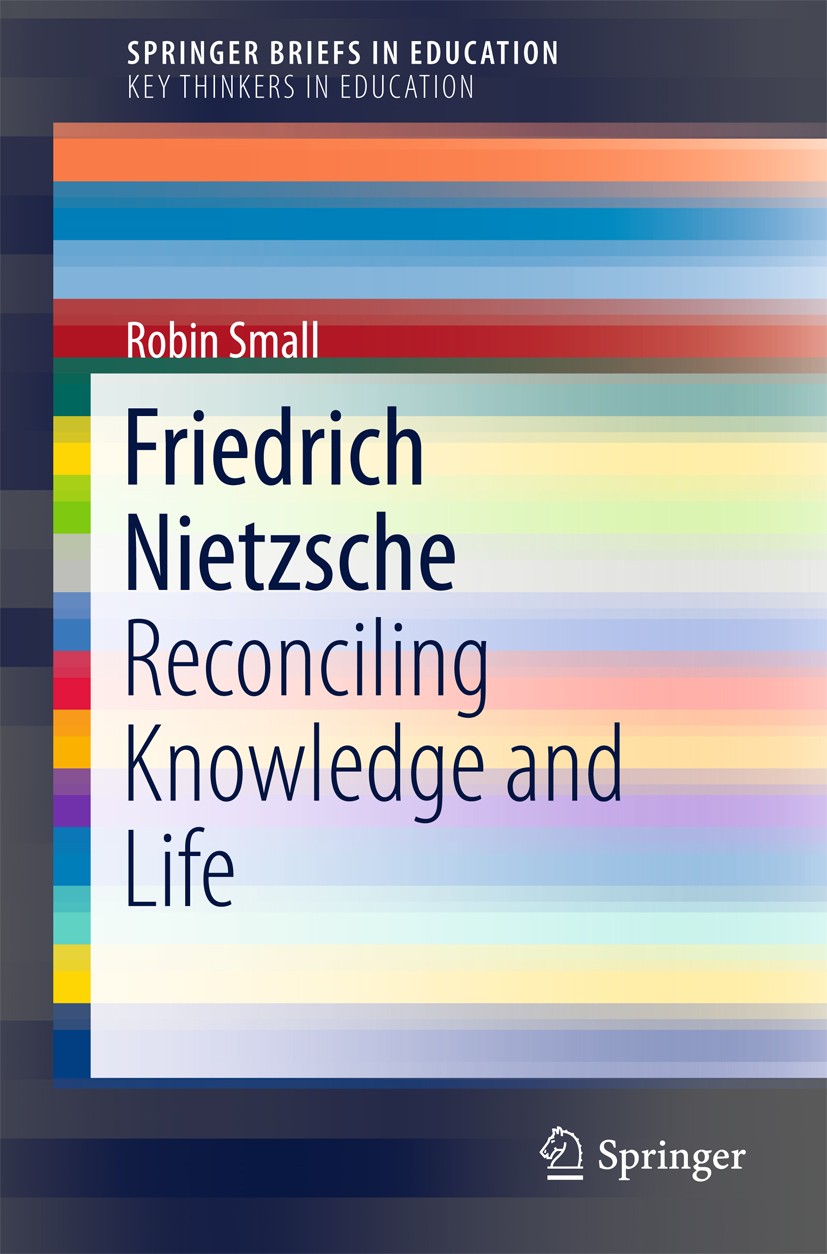| 书目名称 | Friedrich Nietzsche |
| 副标题 | Reconciling Knowledg |
| 编辑 | Robin Small |
| 视频video | http://file.papertrans.cn/349/348409/348409.mp4 |
| 概述 | Discusses Nietzsche‘s contributions to educational thought and policy, and the presence of his ideas in critiques of schooling in today’s society.Reflects Nietzsche‘s interest in the professional ethi |
| 丛书名称 | SpringerBriefs in Education |
| 图书封面 |  |
| 描述 | .This book offers a succinct guide to Friedrich Nietzsche’s contributions to educational thought, placing them within the context of his overall philosophy and adding biographical background information that sheds light on his thinking. Topics discussed in detail include theories of knowledge and life, concepts of teaching and learning, and practice and policy issues in modern education. Friedrich Nietzsche (1844–1900) was a major Western thinker with much to say about education, both directly and indirectly. A fierce critic of the schools and universities of his time, he affirms the centrality of ‘culture’ and the exceptional individual as the true aim of education. For Nietzsche, the human predicament is characterised by the tension between knowledge and life. The task of education is to reconcile these demands, but that requires a radical rethinking of knowledge and a re-evaluation of morality. Nietzsche’s new conception of truth replaces facts with interpretations, and certaintywith bold experiment. His new virtues arise out of the ‘sublimation’ of drives that are condemned by traditional morality. An education of the future promotes these aspects of individual development. Eve |
| 出版日期 | Book 2016 |
| 关键词 | Mass Education; Public Schools; Culture; Sublimation; Virtues; Self-Education; Sovereign Individual; Episte |
| 版次 | 1 |
| doi | https://doi.org/10.1007/978-3-319-29519-0 |
| isbn_softcover | 978-3-319-29518-3 |
| isbn_ebook | 978-3-319-29519-0Series ISSN 2211-1921 Series E-ISSN 2211-193X |
| issn_series | 2211-1921 |
| copyright | The Author(s) 2016 |
 |Archiver|手机版|小黑屋|
派博传思国际
( 京公网安备110108008328)
GMT+8, 2026-2-8 12:07
|Archiver|手机版|小黑屋|
派博传思国际
( 京公网安备110108008328)
GMT+8, 2026-2-8 12:07


